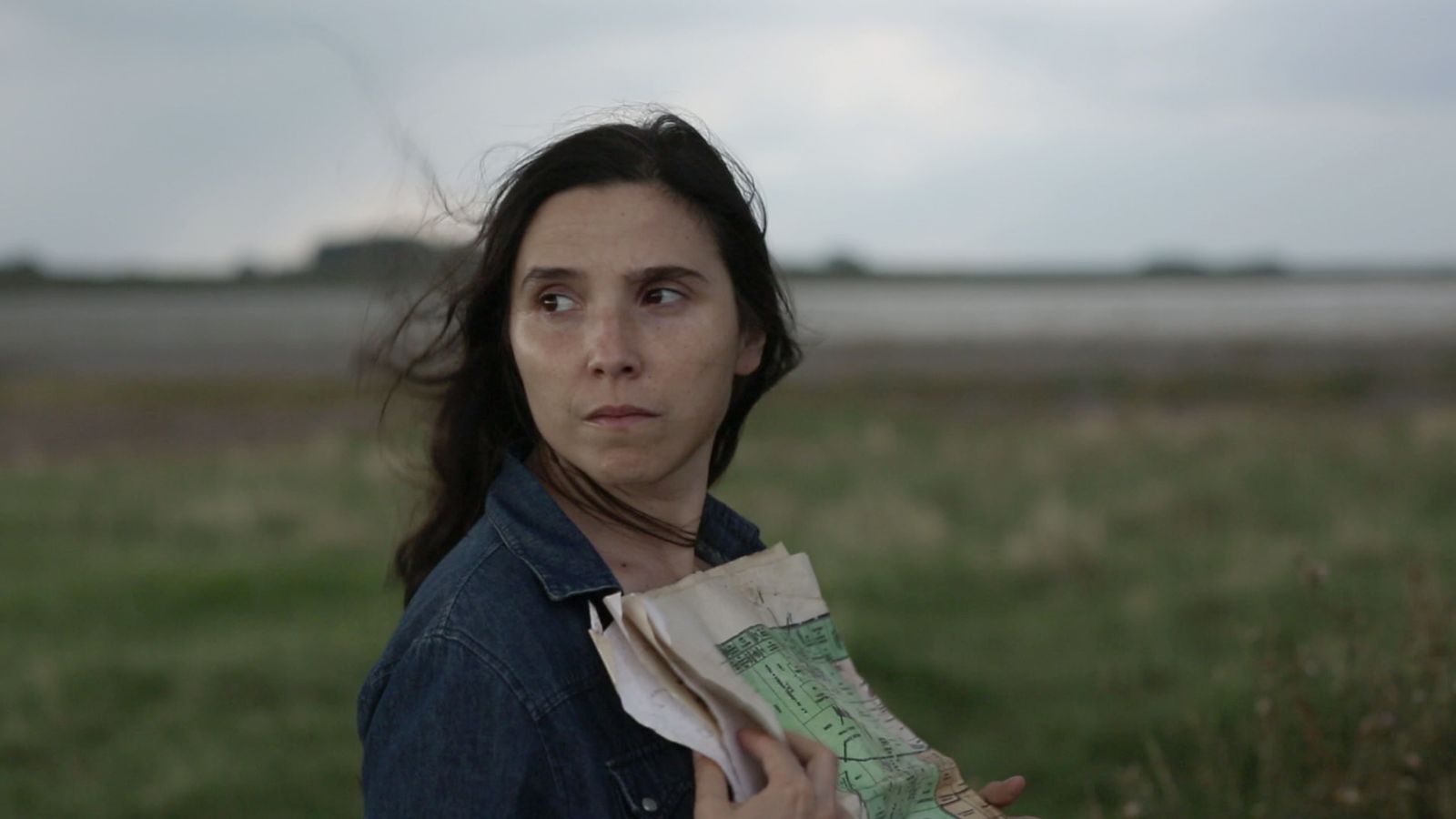There are many films that start with a bang and many that climax at the end. There are fewer that wow with a deliberately calibrated, orgiastic halfway mark. This (among many other qualities) makes Argentinian director Laura Citarella’s beguiling, shape-shifting epic Trenque Lauquen something of a rarity. The first half of the 250-minute film (also screening in two parts at festivals, which is perfectly doable and would probably lead to a different viewing experience) concludes with a wordless scene of contemplation that abruptly cuts to a title sequence for the ages. This brutal transition comes as a surprise—not only because nothing in the two hours you’ve just spent has prepared you for the mean glare of strobe light and nasty electro beat accompanying the credits list. It also feels like a promise, a dare: “Think that’s enough weirdness for one movie? We’re just getting started.” However fatigued or perplexed one may be at this point, the sweet kick of adrenaline from this madly confident interlude will send pulses racing like the best of cinema does. But let’s start again from the top.
Trenque Lauquen opens on a somewhat muted note. We follow two middle-aged men, Rafael and Ezequiel, as they try finding a missing woman named Laura (La Flor‘s Laura Paredes) in and around Trenque Lauquen, a small city in the province of Buenos Aires. Through various narrative threads and interchanging perspectives, we learn Laura is a biologist in a relationship with Rafael and has been sent to work for the provincial government on a land survey assignment. She also contributes to a local radio show on a segment about little-known female historical figures. Ezequiel is a driver who takes her where she needs to be and occasionally joins her for a drink. By chance does Laura discover a batch of secret love letters written in the 1960s and hidden in old books around the library. Before long she and Ezequiel become obsessed with these passionate, often erotic messages from another time.
If Part I of Trenque Lauquen is a gently cryptic tale about the mystery of private histories, part II is its vaguely sinister mutant twin about… something else. While we’re still trying to make sense of Laura’s disappearance, the two men in her life kind of fall to the wayside. Instead the story focuses on Juliana, the radio host whose program Laura guests on, and Elisa, a medical doctor tasked with investigating the creature sighted at the city lake—two women who know another side of Laura. Yes, a mysterious being has been seen and people are talking. Is it human? Animal? An apparition? And is Elisa holding it captive at her house, a place of inexplicable appeal that keeps drawing Laura back?
Citarella’s screenplay (co-written by Paredes) reads like a detective novel—except there’s no killer, no victim, and we’re not quite sure there’s a crime. It deals with the puzzle of the heart and how, despite our best efforts, we can never truly know someone else. Maybe not even ourselves. Laura and Ezequiel dug up all the private correspondence and public records they could find about the couple who had an affair. They pore over every word and image, speculate, imagine, and theorize, but did they ever come close to understanding the object of their obsession? Both Rafael and Ezequiel believe they share an intimate bond with Laura, only to realize they’re barely talking about the same person. There’s an excellent scene towards the end of Part I where Rafael visits a city hall worker who tells him about her experience with Laura. As her description diverges further and further from your impression of the protagonist you get that tingle of unease, the disturbing sense that all is not what it seems.
For all its inherent strangeness, Trenque Lauquen‘s first half often plays innocently upbeat. Sure, a woman has gone missing, but there’s great romanticism in the depiction of Laura and her way of loving vicariously through people from the past. This hypnotic mix of earthbound, realist cinema and fanciful surrealism has whispers of Miguel Gomes or Alice Rohrwacher. The startling mid-film credits mark a significant key change: we head into spookily atmospheric Lynch country. Ostensibly about an alien creature that may or may not be kept at the mad scientist’s home, this is Citarella’s take on Twin Peaks: myths, rumors, gossip, ghost stories evoke the paranoia of closed-minded communities and bring a whole city vividly to life. Does the narrative wander a little, especially when it circles back to Laura’s fate at the end? I think so. Yet you can’t help being captivated by a film that has crafted such a compelling, richly enigmatic sense of place. Its location doesn’t just become a character—it becomes the character.
Long movies are not necessarily good or even ambitious; Trenque Lauquen is both. Notwithstanding a few minutes that could be shed here and there, everything from its sweet, intriguing Part I, the strategically placed and electrifying title sequence, and deliciously ominous Part II feel purposeful, organic. And as the passage of time inevitably adds texture to cinematic dreamscapes such as this, those committing to the full, uncut experience of Citarella’s vision shall be rewarded accordingly.
Trenque Lauquen screened at Filmfest Hamburg and will play at the New York Film Festival.

